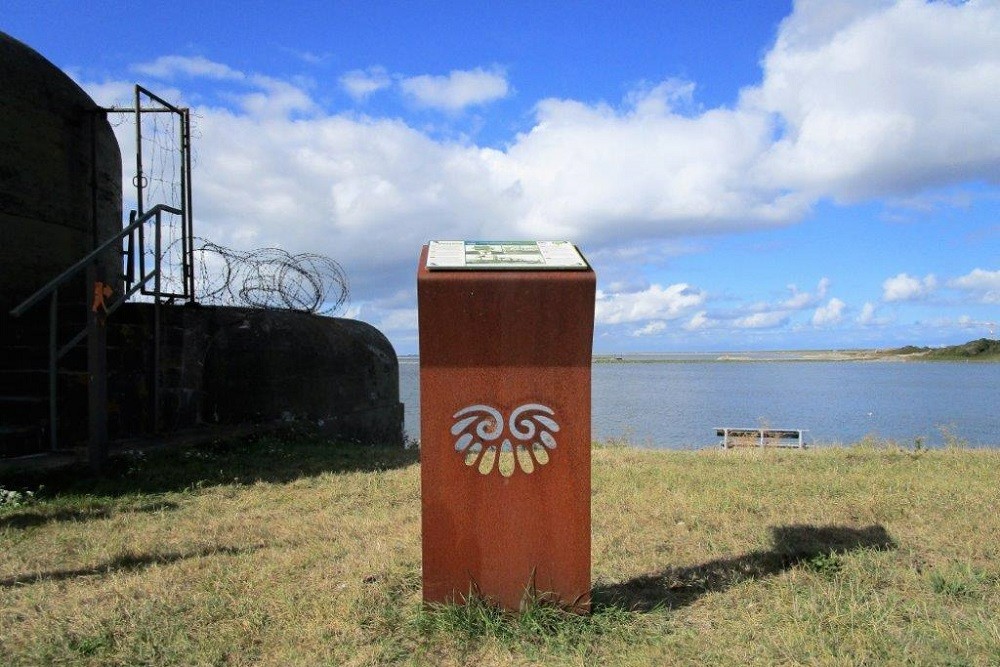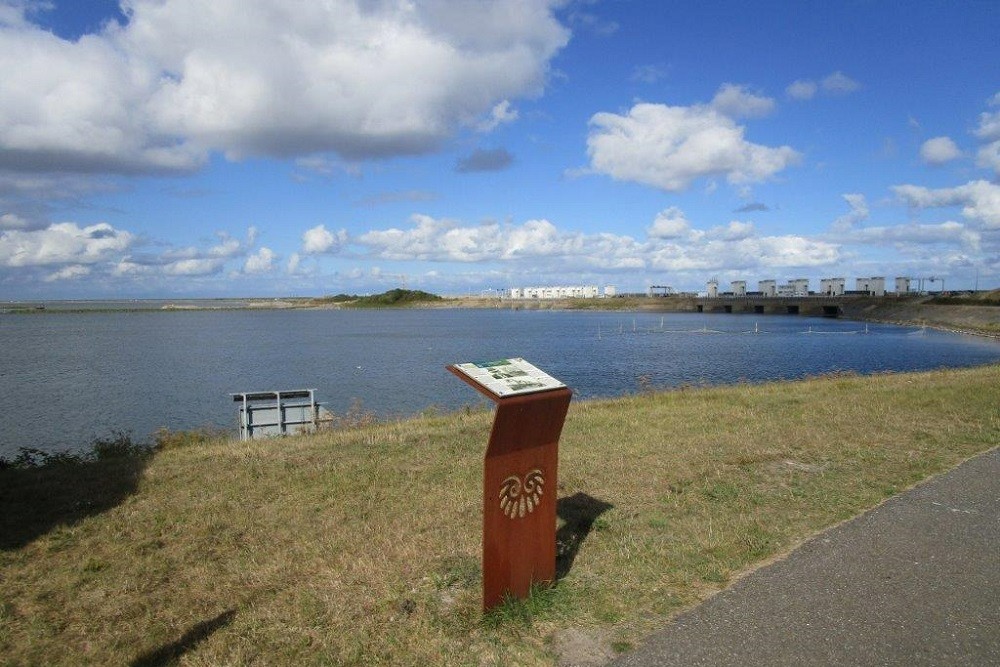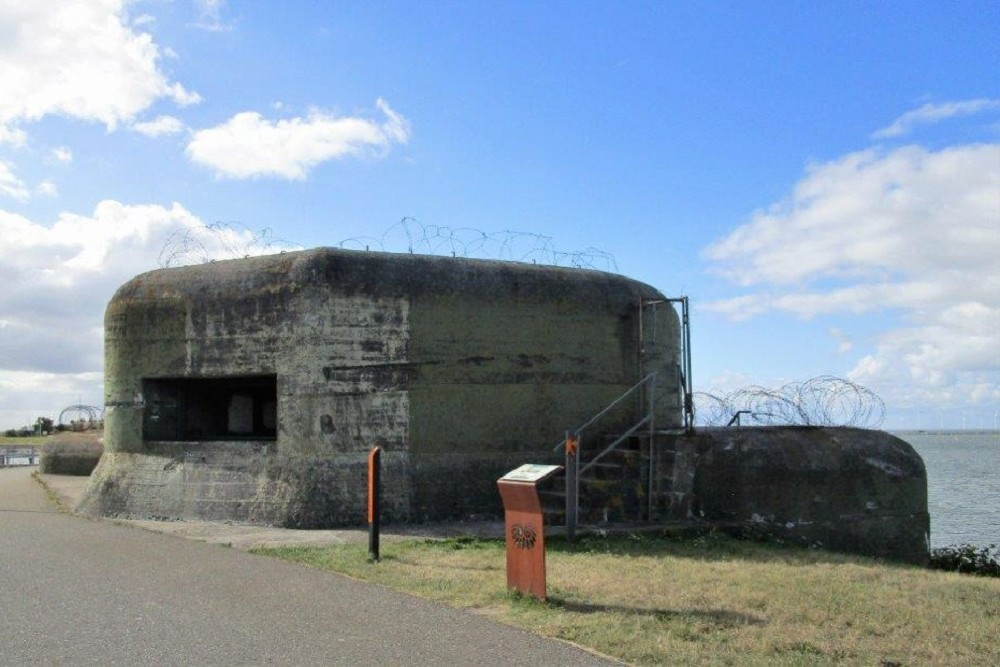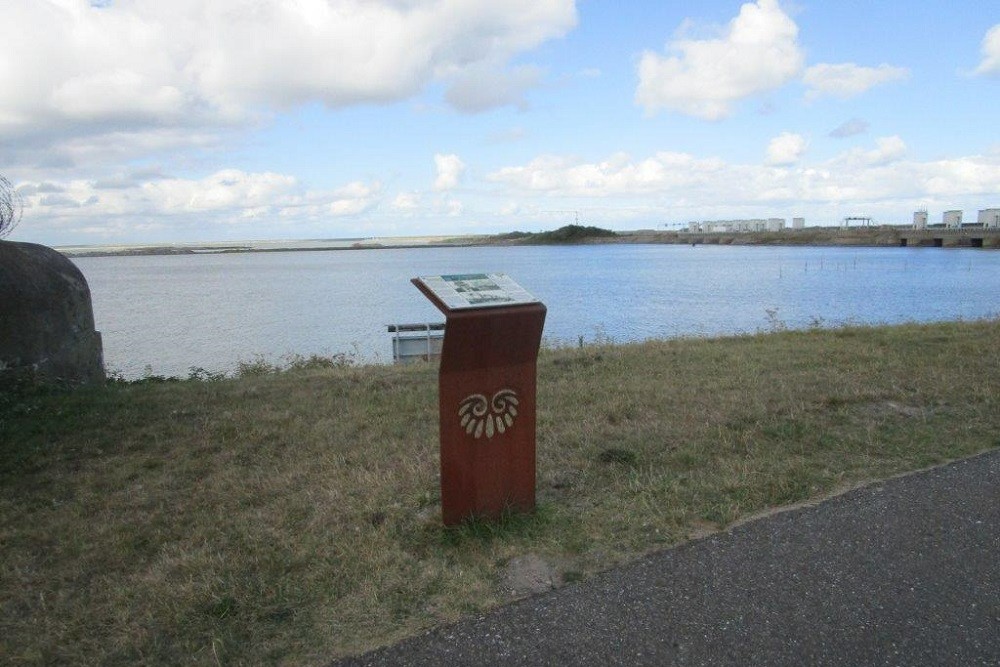Liberation Route Marker 645: Frisian resistance!
Frisian resistance!
In the last two years of the war, the resistance in Friesland became more and more organised. On 12 December 1944, the Dutch Internal Armed Forces (NBS) were founded in Friesland on the orders and under the leadership of Prince Bernhard. In Makkum the resistance was active from the very beginning of the war, and in the small settlement of Kornwerderzand, there were nightly arms drops for the resistance. In the last year of the war, there were approximately 3,000 armed resistance fighters active in Friesland.
The early years of the war were relatively quiet in Friesland, with only incidental acts of resistance. This changed after the May Strike of 1943. The cause was the German occupier's call for all Dutch prisoners of war released in 1940 to be put to work in Germany. This triggered the resistance in Friesland to become better organised. Existing groups were merged into the Dutch Internal Armed Forces (NBS), which were founded in Friesland on 12 December 1944 on the orders and under the leadership of Prince Bernhard.
In Makkum, the resistance was active from the very beginning of the war. The brothers Aart and Thymen van den Berg made their fish canning factory entirely available to the Frisian resistance. Using the weapons, alcohol and smoked eel, the staff of the factory became friends with the most important executioners of the Sicherheitsdienst in Leeuwarden. When the Germans were loosened up by the drinks, the information they spilt was passed on to the resistance. They managed to free 60 imprisoned resistance fighters and knew when to expect raids. The fish canning factory grew to be a hotbed of Frisian resistance. The Sicherheitsdienst in the Burmania house in Leeuwarden was bugged, and the resistance was able to warn people named in interrogations. Other forms of resistance were the distribution of illegal magazines to inform the population about troop relocations, collaborators, or to boost morale.
In the summer of 1943, there was a wave of people going into hiding, and the expansive Frisian countryside proved to be very suitable for sheltering people. The resistance also played an important role here. Thugs raided distribution offices and stole huge quantities of food stamps, for example. Towards the end of the war, there was a food shortage and dairy factories, butchers and food producers were targeted. During this period, the first arms droppings like the ones on Kornwerderzand took place. On 13 April 1945, the NBS leadership followed the order to help accelerate the advance of the allied troops. Large parts of Friesland were liberated in Mid-April 1945.
Audiospot - Frisian resistance!
Liberation Route Europe is a certified Cultural Route of the Council of Europe. With hundreds of sites and stories in nine European countries, the route links the main regions along the advance of the Allied Forces in 1943-1945.
The entire route consists of themed routes that can be travelled by by hiking, walking, cycling and car. These routes pass numerous historical and interesting sites and tell stories from a multitude of perspectives that were important in the final phase of World War II.
Many routes feature listening spots, offering the opportunity to listen to a historical story at a location. In addition, many ‘Vectors of Memory’ have been placed, indicating that the passer-by is on one of the Liberation Routes.
The routes can be found on the Liberation Route Europe website or in the app through which many stories can also be listened to.
Do you have more information about this location? Inform us!
Source
- Text: TracesOfWar & Liberation Route Europe
- Photos: Arie van Wijngaarden (1, 3, 4, 5), Arjan Vrieze (2)
Nearby
Museum
Point of interest
- Information Sign 'The enemy did not pass here' - Kornwerderzand
- 0.4 km
- MAZA complex Harlingen - Harlingen
- 12.2 km
Monument
- Monument Lockheed Hudson FK790 - Kornwerderzand
- 0.0 km
- Memorial for those of HMS. Johan Maurits van Nassau fallen in action - Kornwerderzand
- 0.0 km
- Memorial Killed Soldiers May 1940 - Kornwerderzand
- 0.0 km
Cemetery
- Commonwealth War Graves Protestant Churchyard Makkum - Makkum
- 4.6 km
- Dutch War Graves Protestant Churchyard Makkum - Makkum
- 4.6 km
- Polish War Grave Protestant Churchyard Makkum - Makkum
- 4.6 km
Remembrance Stone
Fortification
- Stelling Kornwerderzand - Casemate IV - Kornwerderzand
- 0.0 km
- German Anti-tank Casemate - Kornwerderzand
- 0.0 km
- Stelling Kornwerderzand - Casemate III - Kornwerderzand
- 0.1 km








